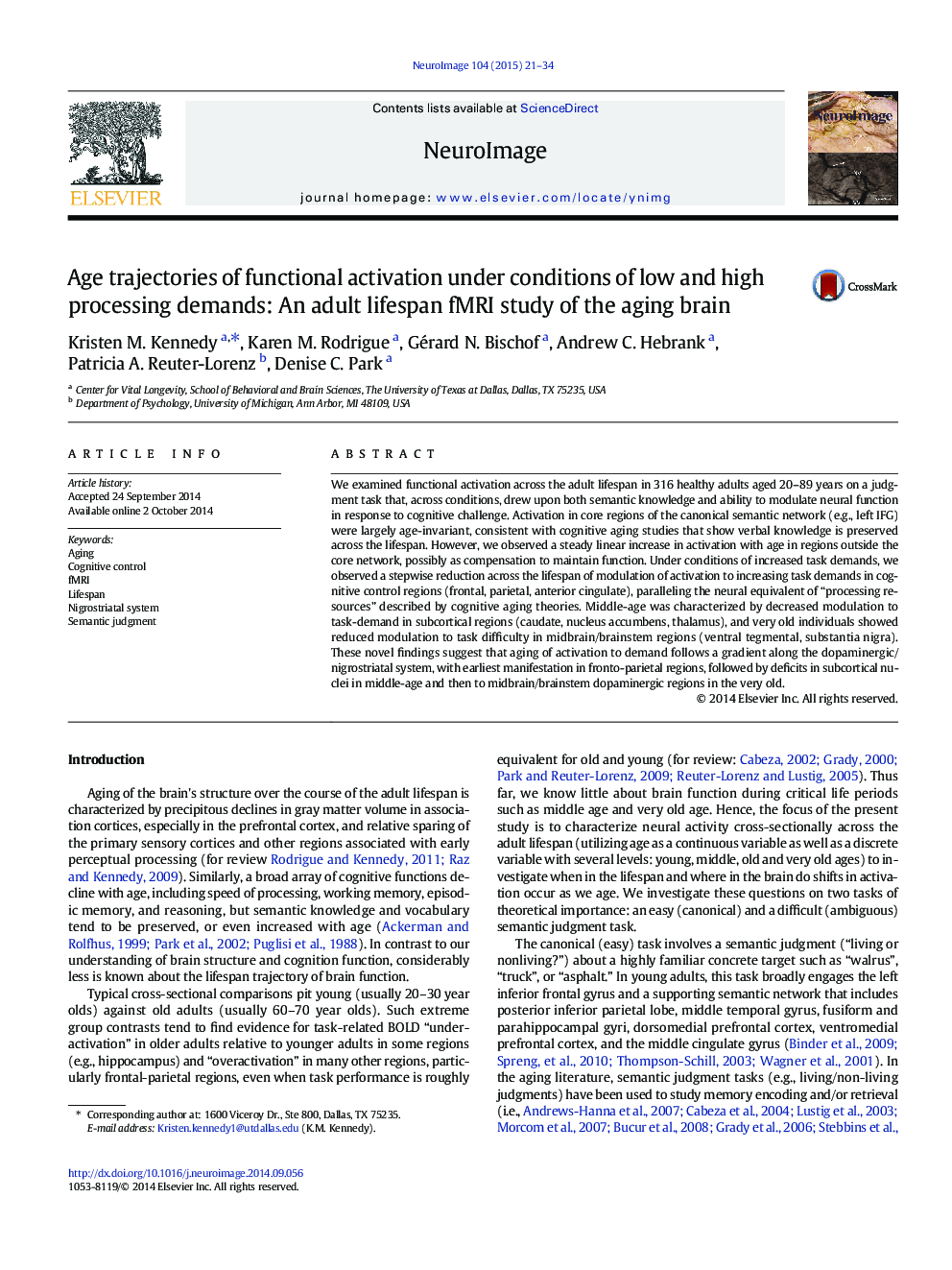| Article ID | Journal | Published Year | Pages | File Type |
|---|---|---|---|---|
| 6026434 | NeuroImage | 2015 | 14 Pages |
Abstract
We examined functional activation across the adult lifespan in 316 healthy adults aged 20-89Â years on a judgment task that, across conditions, drew upon both semantic knowledge and ability to modulate neural function in response to cognitive challenge. Activation in core regions of the canonical semantic network (e.g., left IFG) were largely age-invariant, consistent with cognitive aging studies that show verbal knowledge is preserved across the lifespan. However, we observed a steady linear increase in activation with age in regions outside the core network, possibly as compensation to maintain function. Under conditions of increased task demands, we observed a stepwise reduction across the lifespan of modulation of activation to increasing task demands in cognitive control regions (frontal, parietal, anterior cingulate), paralleling the neural equivalent of “processing resources” described by cognitive aging theories. Middle-age was characterized by decreased modulation to task-demand in subcortical regions (caudate, nucleus accumbens, thalamus), and very old individuals showed reduced modulation to task difficulty in midbrain/brainstem regions (ventral tegmental, substantia nigra). These novel findings suggest that aging of activation to demand follows a gradient along the dopaminergic/nigrostriatal system, with earliest manifestation in fronto-parietal regions, followed by deficits in subcortical nuclei in middle-age and then to midbrain/brainstem dopaminergic regions in the very old.
Related Topics
Life Sciences
Neuroscience
Cognitive Neuroscience
Authors
Kristen M. Kennedy, Karen M. Rodrigue, Gérard N. Bischof, Andrew C. Hebrank, Patricia A. Reuter-Lorenz, Denise C. Park,
